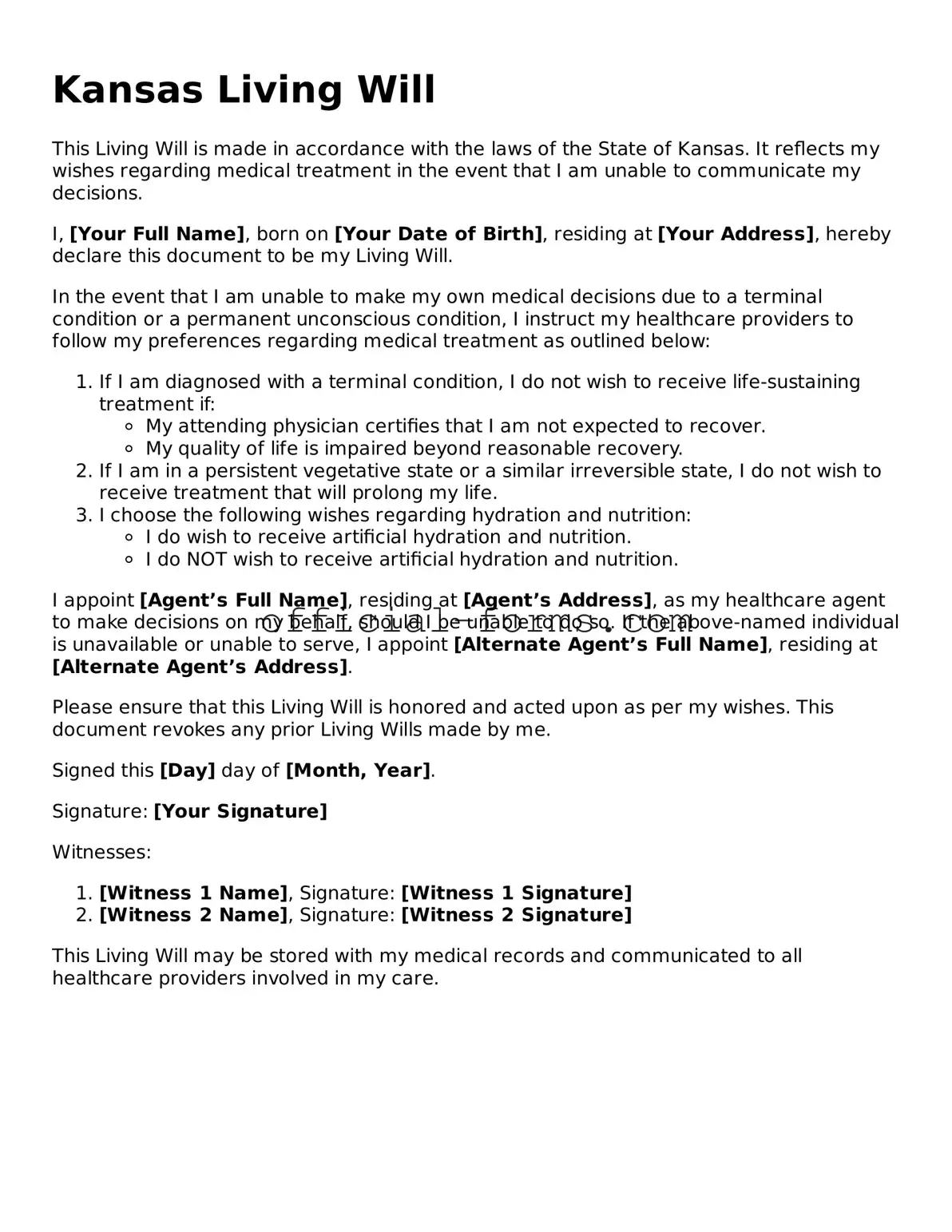Official Kansas Living Will Document
A Kansas Living Will form is a legal document that allows individuals to express their wishes regarding medical treatment in the event they become unable to communicate those wishes themselves. This form ensures that your preferences for end-of-life care are respected and followed by healthcare providers. Understanding how to properly complete and use this document is essential for anyone looking to safeguard their healthcare decisions.
Open My Living Will Now

Official Kansas Living Will Document
Open My Living Will Now
Don’t leave your form incomplete
Finish Living Will online quickly from start to download.
Open My Living Will Now
or
➤ PDF
